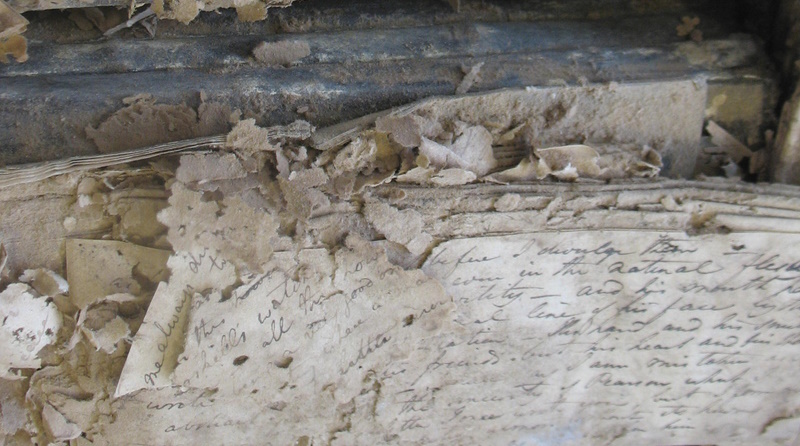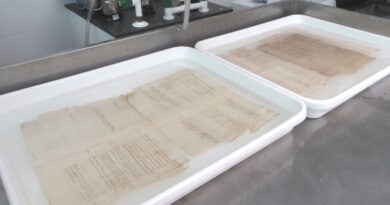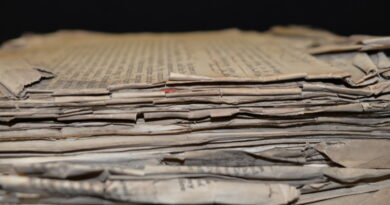Preserving Norfolk’s Archives
NorAH recognises that archives need to be looked after so they can be enjoyed by future generations. It is therefore supportive of any project which improves the preservation of Norfolk’s archives, thereby securing future public access. Good preservation ensure documents don’t suffer damage or deterioration. Sometimes, archive repositories receive documents that are so fragile, it is decided that any handling could cause the permanent loss of unique information. In such cases, active conservation is required in order to make an archive accessible.
Archives don’t do well in wet or damp conditions. Mould can eat away at paper and parchment. Furthermore, rodent and insect damage is not uncommon. Dampness and animal damage can be linked, for example, if documents have been stored in damp condition, there may well be silverfish. Storing archives in appropriate environmental conditions, with appropriate temperature and relative humidity ensures archives do not deteriorate. In addition, archives need to be stored in boxes and packaging which is acid-free. This ensures the packaging doesn’t damage their content over time. Packaging and boxes need to fit the archive, and not the other way round. This ensures the physical condition of archives is not compromised. You will often find ferrous metal, such as staples and elastic bands with archives. These need to be removed to ensure that as they decay over time, they do not damage the archive. Similarly pink legal tape needs to be removed because if it comes into contact with water, it will stain archives. Often archives have been mended with pressure sensitive tape. We know this will fail over time, again leaving a stain on the archive.
Archive conservation is sometimes required in order to make an archive available for consultation. It involves carefully identifying what has survived and includes one or more of the following activities; cleaning, flattening, repairing tears and fraying, stabilising weak paper or parchment; or filling holes. It is important for an archive’s evidential value that all conservation work is recorded, is obvious, and can be reversed.
NorAH has funded several conservation projects. By becoming a Norfolk Archive Supporter or making a donation, you will allow NorAH to do more.
The featured image is of the letters, before conservation, of Richard Bright, physician, which are held by the Norfolk Record Office. The are an extreme example of what can happen to archives if not stored correctly.



